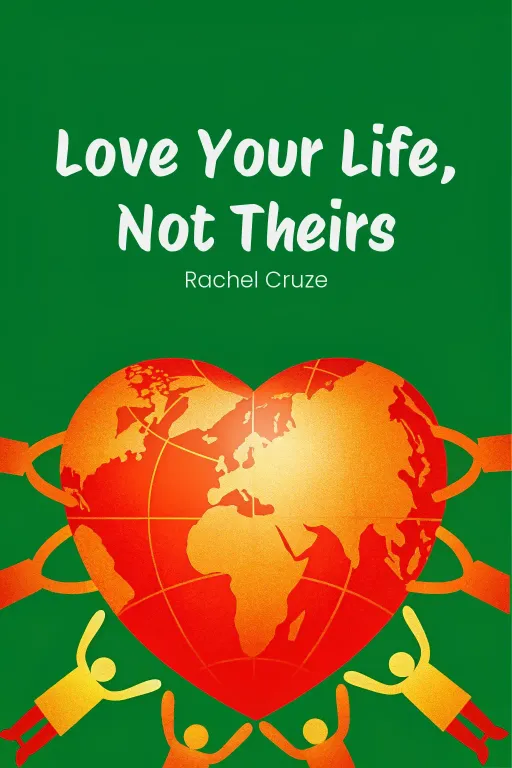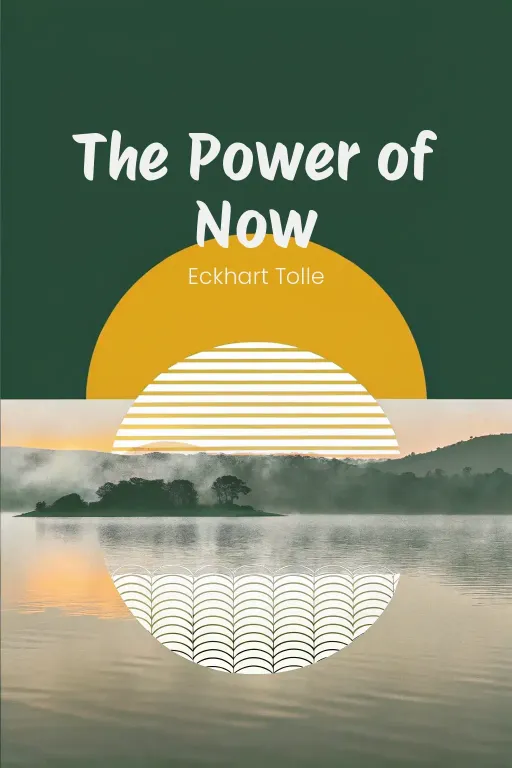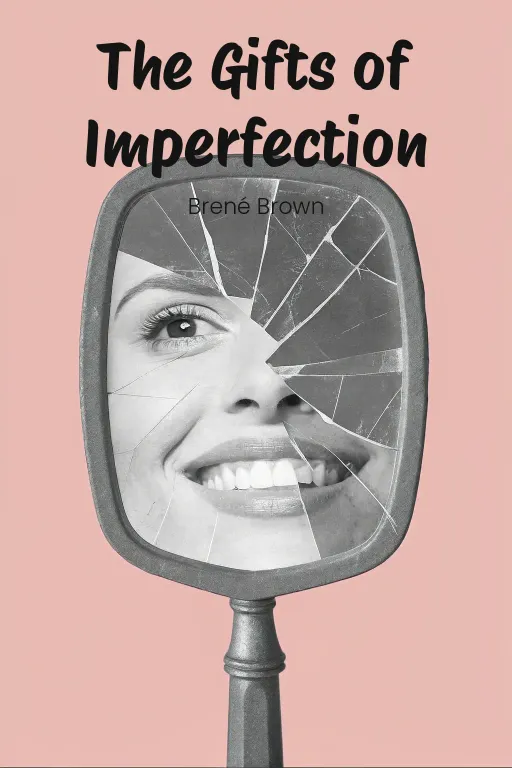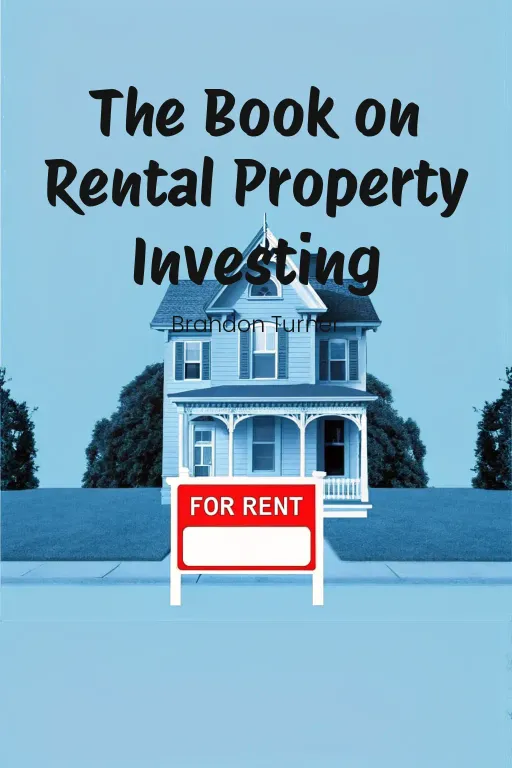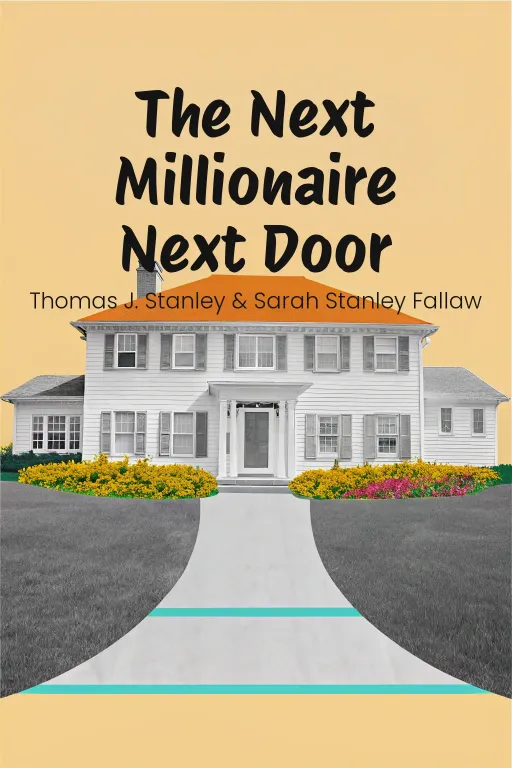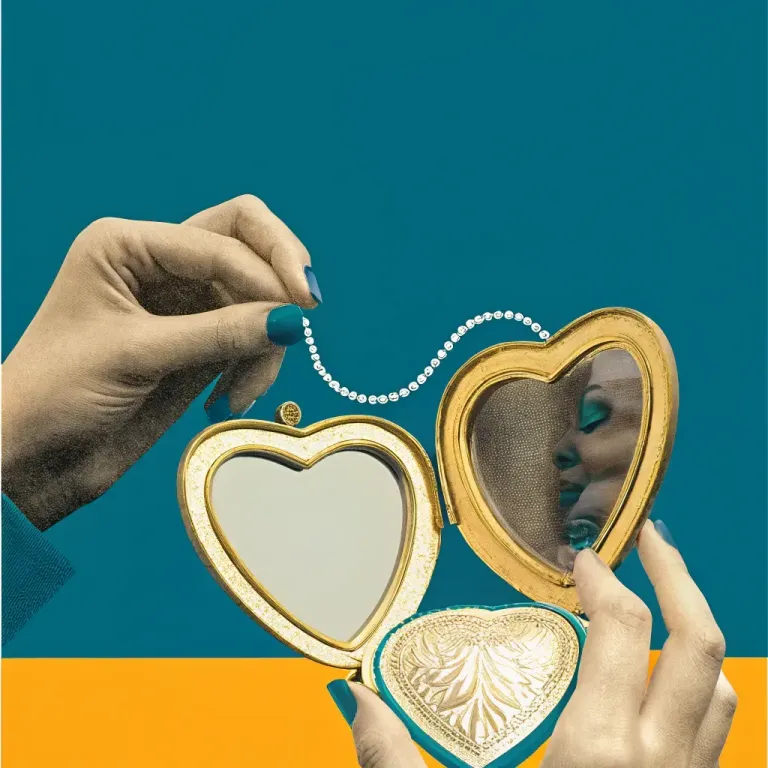
Crush Debt & Live Free: Your Money Game Plan
Podcast by Let's Talk Money with Sophia and Daniel
7 Money Habits for Living the Life You Want
Introduction
Part 1
Daniel: Hey everyone, welcome back to the show! Let's kick things off with a question: you know that little sting you feel when you’re scrolling through social media and see those perfect vacation pics, dream homes, or shiny new cars? Yeah, you're definitely not the only one. Comparison just kind of creeps into our lives, quietly zapping our joy “and” emptying our wallets. Sophia: So, you're saying Instagram's not just showcasing what I “don't” have, but it's also eyeing my bank account? Fantastic. Daniel: Precisely! Which is why we're diving into Rachel Cruze's book, "Love Your Life, Not Theirs.” The basic idea is: enough is enough! Cruze outlines seven habits designed to help us break free from the comparison trap, ditch debt, and really focus on achieving financial freedom by prioritizing what “we” value, not what society tells us we should. It’s about switching gears from just reacting to our spending and actually living with intention. Sophia: I'm listening, but I'm also a little skeptical. Seven habits? That sounds like a whole bunch of rules to follow. Daniel: Think of them more as tools, not rules, okay? And today, we're zeroing in on three of the most powerful ideas. First, we'll talk about how comparison throws us off course and what we can do to get back on track. Then, we'll tackle why debt isn’t the "necessary evil" we tend to think it is. And finally, we’ll explore how budgeting can be your lifeline, not some restrictive leash. Think of it as charting a clear financial path, steering clear of the turbulence, you know? Sophia: So Daniel, let’s hope this financial lighthouse you're describing is as solid as it sounds. Let's jump right in.
Quit the Comparisons
Part 2
Daniel: Okay, so picking up where we left off, let's really dig into the first habit Cruze emphasizes: “Quit the Comparisons”. Essentially, it’s all about understanding the emotional and, let's face it, “financial” cost of constantly comparing ourselves to others. And more importantly, how we can actually shift our mindset to break free from that trap. It starts with just recognizing how deeply this habit affects our lives, and, you know, our wallets. Sophia: Alright, I'm listening. So, how much damage are we talking about here? I mean, I've definitely seen my share of humblebrags online, but are we saying that just scrolling through Instagram is actively draining my bank account? Daniel: Well, potentially, yes! Cruze makes a pretty strong case that social media has blown up the whole "keeping up with the Joneses" thing. It's not just about your actual neighbors anymore. Now, those Joneses are influencers jetting off to Greece, entrepreneurs flashing sports cars, or families with kitchens that look straight out of a magazine. Sophia: Ah, this is where she brings up the Charleston versus Greece story, right? Daniel: Exactly! So Cruze shares this relatable moment from her own life. She and her husband, Winston, had just had an amazing vacation in Charleston, and she was feeling really good about it. That is, until she saw someone on Instagram posting about a lavish trip to Greece, complete with yachts and crystal-clear water. And just like that, her happiness kind of evaporated and turned into dissatisfaction. She found herself wondering, "Why aren't we doing that?" Sophia: Yeah that's... relatable content. But isn't comparing ourselves to others just part of being human? I mean, social media isn't forcing me to buy that expensive coffee. I'm making that decision. Daniel: True, comparison might be human nature, but the scale is totally different now. Social media creates unrealistic expectations because people only show their highlight reels. You never see the struggles behind the scenes, or their actual bank statements. We see these perfectly curated lives and get tricked into thinking everyone else is doing better, is richer, or achieving more. Sophia: Okay, fair enough. I get that. But how does that go from just feeling a little envious to actually spending money we shouldn't? Are people seriously dipping into their savings because of a vacation selfie? Daniel: Okay not directly, but it’s more subconscious. Cruze explains that comparison creates this perceived distance between where we are and where we think others are. And that gap can lead to emotional spending, like buying something flashy to make ourselves feel better or to try and "prove" that we're on the same level. Sophia: Oh, so it’s the classic "retail therapy" idea, just amplified by social media algorithms and fueled by envy? Right. So, how do we actually break this cycle? Daniel: Well, Cruze suggests a few practical things. First, limit your exposure to whatever triggers you. If scrolling through certain accounts consistently makes you feel inadequate, just unfollow them. Protect your headspace. Sophia: Easier said than done, right? Social media is like digital nicotine. I'll unfollow, but I'll probably still end up back on those accounts, judging their infinity pools from my couch. Daniel: That's where intentional breaks come in. Cruze recommends scheduling tech-free times in your day—moments to completely unplug and reset. Instead of filling that time with more scrolling or internet habits, replace it with something off-screen: reading, going for a walk, or actually talking to people. Sophia: Actual conversations? Bold strategy, but alright, I'm listening. What else? Daniel: Gratitude is huge. Comparison shifts your focus away from what you have and puts it on what you lack. Cruze suggests building a daily gratitude habit—write down a few simple things you’re thankful for, like a meaningful moment, a good meal, or even something as simple as clean sheets. Sophia: So instead of obsessing over someone’s private jet, I could be grateful for my perfectly functional couch and a weekend of streaming cheesy action movies? Daniel: Exactly! Cruze uses her own Charleston trip as an example. After really thinking about it, she started focusing on the specific joys of her vacation like sitting on the porch, laughing with her husband. And those small but real memories made her realize that her life didn't need a yacht to be full of happiness. Sophia: Alright, gratitude makes sense. But, what if I'm not exactly feeling envious, but more of a "small nudge"—like, "Hey, I do kind of need that new gadget everyone has"? Daniel: That’s where aligning your spending with your values becomes important. Before buying anything, Cruze emphasizes asking yourself a simple, but critical question: “Am I buying this because it actually makes my life better, or because it fits some curated image I think I should be maintaining?” Sophia: Oof, talk about killing the buzz on a shopping trip. But I get what you're saying. So, by not chasing trends, I could stick with the old, mostly-functional laptop and save for something truly meaningful that I’ve considered for a long time. Like, a trip that doesn't punish my credit card later, perhaps. Daniel: Right, and those intentional choices can really add up over time! She also recommends celebrating small wins, like paying off a bill or sticking to your budget for the month. By shifting your focus to personal progress, you're less likely to measure success by someone else's highlight reel. Sophia: Okay, so to recap: unfollow, unplug, rethink your purchases, and savor small wins. Sounds doable. I might even enjoy some social media-free evenings, assuming I can make it through the withdrawal period. Daniel: It's worth the effort. The big takeaway is: Comparison is a thief of joy and money. By keeping your focus inward, you protect them both.
Steer Clear of Debt
Part 3
Daniel: So, Sophia, after navigating the comparison trap, let's dive into taking charge of your financial future by tackling debt. Cruze argues it's all bad, right? Mortgages, student loans—the works. Is that a bit much? Are we advocating a life of perpetual couch-surfing? Sophia: It definitely sounds extreme at first glance. Is she saying mortgages and student loans are just financial quicksand? Daniel: It does sound radical, but Cruze makes a compelling argument. All debt, regardless of type, restricts your financial flexibility. Mortgages or student loans might seem "good" on paper because they fund assets or education, but they still impact your income and decision-making. Think of debt as a financial weight, slowing you down no matter how justifiable the reason. Sophia: Okay, but is there some wiggle room here? Are millennials with student loans or homeowners with mortgages destined for financial purgatory? Realistically, that’s, that's a reality for so many people! Daniel: Not at all! It's not about shaming those in debt. It's about understanding the costs and risks. Take student loans. We’ve been told they're an investment in higher earnings. But many grads find that the income boost either doesn't happen, or it takes too long to actually materialize. Sophia: Right. How about mortgages? I’ve always heard that renting forever is financial suicide. Does she want us to stuff cash under our mattresses while saving for a house? Daniel: Cruze isn’t saying don’t buy a house. She’s saying buy when you can afford it and avoid being strapped for cash. People often buy more house than they can afford, finding themselves house-poor – with no ability to save for emergencies or actually enjoy life beyond mortgage payments. It’s about seeing how debt fits into your overall financial picture. Sophia: Okay, what about people already drowning in loans or maxed-out credit cards? What’s the solution for those living paycheck to paycheck? Daniel: That's where Cruze’s Debt Snowball method comes in. It's about tackling debt and changing your mindset. Sophia: Debt Snowball? Sounds like a fitness craze. What exactly are we rolling up here? Daniel: Think of this: you list all your debts from smallest to largest, regardless of interest rates. You put all extra funds toward paying off the smallest one first, while making minimum payments on the others. Once the smallest debt is gone, you roll that extra money into the next smallest—and so on. It builds momentum, like a snowball rolling downhill, getting bigger as you eliminate each debt. Sophia: So, emotional wins over pure math? Interesting. Why prioritize the smallest debt first instead of attacking high-interest debts? Wouldn’t that make more sense financially? Daniel: It might from a purely mathematical standpoint, but Cruze emphasizes the psychological advantage of the Debt Snowball. Paying off the smallest debt quickly gives you a tangible sense of progress, keeping you motivated. Let’s be honest - human behavior doesn’t always align with spreadsheets. It’s about creating small wins that encourage consistency. Sophia: Makes sense. Any real success stories to back this up? Daniel: Absolutely! Cruze talks about a young couple with six debts, – car loan, credit cards, and a hefty student loan. They felt overwhelmed looking at their balances. But by starting with their $500 credit card balance—the smallest one—they got their first "win" in two months. Sophia: Two months? I bet they stopped eating out right? Daniel: Exactly! They cut back on eating out and canceled unused subscriptions. That momentum carried them through $40,000 of debt over three years. They credited the method for keeping them focused and motivated, even with the bigger loans. Sophia: Impressive. Let’s be real, sacrifices take discipline. No one wants to give up lattes, streaming, or deliveries. Daniel: True, but Cruze presents it as temporary sacrifice for long-term freedom. Which brings us to budgeting. She sees budgeting as crucial for eliminating debt. If you have a clear plan for every dollar, you can reclaim control. Sophia: Alright, let’s get practical. If I’m buried in debt and need a lifeline, where do I start? Daniel: Start by assessing your debts. List every loan, credit card balance, and minimum payment. It's uncomfortable, but you have to face it head on. Then, prioritize saving for emergencies. Even a $1,000 emergency fund can prevent new debt when life throws curveballs. Sophia: So we’re trying to save while still making minimum payments? Daniel: Exactly. You need to be able to protect yourself from future setbacks. Then, get serious about your budget. Focus first on the Four Walls—food, utilities, shelter, transportation. Cut back where you can and funnel those dollars into your Debt Snowball. Sophia: Real talk: Are credit cards a no-go here? Daniel: For Cruze, yes. She says cut them up or freeze accounts to avoid the temptation of falling into old habits. Credit cards perpetuate the cycle—you have to slam the door shut on easy outs. Sophia: Fair enough. And when you do make progress—she suggests celebrating, right? Daniel: Definitely! Each time you cross a debt off the list, reward yourself. It could be dinner, a small outing. It’s those positive reinforcements that keep you moving. Sophia: Alright, Daniel, I’m starting to see the appeal of the Snowball. What’s life actually like on the other side of debt? What’s the point of all this? Daniel: Well, that's the best part: freedom. Imagine no payments hanging over your head. You can save for meaningful goals, invest in experiences, or build wealth for future generations. Cruze shares a story of a father who paid off $75,000 in loans using the Snowball method. Once debt-free, arguments about finances stopped, and he and his wife started planning family trips and focusing on richer experiences. The change was incredible. Sophia: Makes sense. Less debt, less stress, more energy for what actually matters. Daniel: Exactly. Debt freedom isn’t just about avoiding financial stress – it’s about control, flexibility, and the ability to live in a way that matches your values.
Make a Plan for Your Money
Part 4
Daniel: So, Sophia, with debt handled, we're onto budgeting – creating a solid plan for your money. Sophia: Yeah, Daniel, and that’s where I think a lot of people just tune out, right? The word budgeting itself conjures up images of, you know, nothing but rice and beans and absolutely no fun allowed. Daniel: You’re so right. Budgeting has this terrible reputation for being restrictive, kinda like a financial straightjacket. But Rachel Cruze, she flips that idea on its head, you know? She argues that a budget is actually about creating freedom. It’s the freedom to spend without guilt, the freedom to save for what’s genuinely important to you, and, importantly, freedom from financial chaos. It's about actively deciding where your money goes instead of constantly wondering where it disappeared to. Sophia: Okay, I get that in theory. But let's be real. Most of us struggle to even keep track of our streaming subscriptions. Now we're supposed to meticulously plan where every single dollar goes? That sounds… exhausting, to be honest. Daniel: I know, at first it can feel totally overwhelming. But Cruze doesn't just throw the term "budget" at you and walk away. She actually breaks down how to make it work in the real world, and she directly addresses the emotional side of it too. You know, she shares this story about a trip with her husband, Winston, to Charleston. They were having a great time, but then she impulsively ordered this ridiculously overpriced plate of chips and guacamole – $23 for something so basic! And that one splurge triggered all sorts of anxieties about overspending during the whole trip. She felt like the budget was sucking all the joy out of it. Sophia: $23?! Was it, like, guacamole made with unicorn tears or something? That's insane. Daniel: I know! But the interesting thing is what happened next. Instead of just throwing the budget out the window in frustration or, you know, reaching for a credit card, they took a step back and reframed the situation. They sat down and planned out the rest of their meals, making sure they stayed within their budget. That one small adjustment totally transformed her anxiety into reassurance, because she knew every expense going forward was intentional. They left Charleston with amazing memories and, crucially, without any financial regrets. Sophia: Okay, so the key takeaway here is that a budget doesn't mean you have to give up all the things you enjoy. It just means setting boundaries that let you enjoy those things, guilt-free. But I have to ask, Daniel, why does budgeting feel so unnatural for so many of us? Daniel: Well, Cruze explains that it’s not just about the numbers. It’s about psychology. Many people mistakenly think that spending freedom equates to financial freedom. But that kind of mindset often leads to a lot of chaos, right? Budgeting, on the other hand, provides structure and control, which are actually the real drivers of emotional satisfaction. Plus, it really helps you align your spending with your core values. If you understand what truly matters to you, your budget becomes a tool to prioritize those things instead of wasting money on stuff you don't even care about deep down. Sophia: Alright, let's say I'm buying into this idea, both literally and emotionally. What does creating a budget actually look like in the real world? Are we talking about a huge, complicated spreadsheet with everything logged down to the penny? Daniel: Not necessarily! Cruze outlines a really simple system built on three key categories: giving, saving, and spending. And the order of those categories is super important because it reflects your values. You start with generosity, then you secure your future, and finally you take care of your current needs and wants. Sophia: Interesting. I would have thought spending would come first since, you know, bills don't wait patiently while you figure out how to allocate your budget to everything else. Daniel: That's the conventional way of thinking, but Cruze flips it. By prioritizing giving, you start your budget with a sense of purpose and gratitude. Even if it's just a small percentage of your income, giving helps shift your mindset away from scarcity and towards abundance. Research has actually shown that people who consistently give tend to feel more fulfilled, so generosity isn't just about helping others—it's about helping yourself reshape your relationship with money. Sophia: So the whole “it’s better to give than to receive” thing actually has some financial logic to it. Fine, I’ll bite. What’s next? Daniel: Next up is saving. Cruze is a huge advocate for building an emergency fund as your absolute first step—at least $1,000 to start, then work your way up to having three to six months' worth of living expenses saved. That way, when those inevitable unexpected expenses pop up, you're prepared and you don't have to resort to debt. Sophia: Yeah, you've mentioned emergency funds before. But what about saving for fun things, like vacations or, you know, the latest tech gadget? Can you actually work those into a budget without feeling guilty? Daniel: Absolutely! That's the great thing about budgeting—it helps you thrive, not just survive. Once your emergency fund is in place, you can start allocating savings toward specific goals, whether it's that once-in-a-lifetime trip or a comfortable retirement. The key is prioritizing and planning those things ahead of time so you're spending intentionally instead of impulsively. Sophia: Okay, I'm following you so far. But here’s my biggest issue with all of this: how do you actually stick to the plan? What prevents people from completely derailing their budgets the moment they see something they really want? Daniel: That's a great question. Cruze recommends two strategies to manage your spending within a budget: the cash system and digital tools. Each has its own advantages, depending on your personality and habits. Sophia: The cash system? Daniel, are we seriously going back to stuffing envelopes with actual bills? Daniel: Kind of! With the cash system, you physically divide your budget into envelopes for each expense category, like groceries or entertainment. You withdraw cash for those categories, and when the envelope is empty, you’re done spending in that area for the month. It’s definitely old-school, but it's surprisingly effective because physically seeing and handling cash makes you more conscious of your spending limits. Sophia: I don't know, Daniel. My wallet barely fits my credit cards, let alone stacks of cash. Plus, what if I want to shop online? Daniel: Well, that's where digital tools come in. Apps like EveryDollar and Mint sync directly with your bank accounts, track your spending in real-time, and even alert you if you're nearing the spending limits you've set. It's a modern, automated approach to keeping your budget on track, and it’s perfect for those who really hate dealing with physical cash. Sophia: So, what’s the catch? Do these apps, like, guilt-trip you with pop-up messages saying, "Seriously? That’s how much you spent on take-out this month?" Daniel: Some of them do! But that added accountability can actually be a good thing. Cruze even suggests combining the two systems – using cash for the areas where you tend to overspend, like dining out, and using apps for everything else. That combination can give you both control and convenience. Sophia: Alright, I’ll admit this all sounds more doable than I initially thought. But let's say I actually manage to consistently budget and stick to it. How can I be sure it's actually worth all of this effort, Daniel? Daniel: Because budgeting provides some serious long-term benefits, Sophia. Like, real and lasting freedom from money-related stress and the ability to achieve meaningful goals. You know, Cruze shares this story about a couple who, after starting a budget, were able to pay off their debt while also saving for a family vacation. Before, they were constantly feeling guilty about their spending. Now, they enjoy their money intentionally and they even indulge in guilt-free splurges, simply because they know their finances are in order. Sophia: So budgeting isn’t just about numbers – it’s about peace of mind, too. Fine, Daniel. You’ve won me over. Create a plan for your money, stick with it, and watch your life transform. Simple, right? Daniel: Simple, yes, but it's definitely not always easy. However, the payoff – true financial peace and intentional living – makes it completely worth it. And that’s where the real beauty of budgeting shines.
Conclusion
Part 5
Daniel: Okay, let's wrap things up. We've looked at three really key habits from Rachel Cruze’s book, “Love Your Life, Not Theirs”. First off, we talked about how that constant comparison game we play, especially on social media, just robs us of joy… and can really mess with our finances, too. Her solution? Unplug a bit, be grateful for what you have, and really celebrate your own wins, big or small. Sophia: Right, so ditch the highlight reel envy. Next up, we dove into the dark depths of debt. It’s that financial anchor that just keeps you stuck. Cruze is pretty clear: debt, even the "good" kind, limits your freedom. And her Debt Snowball method? It's a super practical way to actually start breaking free, one step at a time. I kind of like the imagery of snowball. Daniel: Absolutely. And finally, we talked about budgeting. But not like it's a punishment! Think of it as a tool to actually empower yourself. When you intentionally match your spending, saving, and, yes, even your giving with what you truly value, you completely redefine what financial freedom feels like. Suddenly, it's your definition, not someone else's. Sophia: So, here's the takeaway: stop the comparison, sidestep those debt traps, and grab the reins of your money with a solid plan. The big question to ask yourself is, "What really brings me happiness and a sense of freedom?" Then, make sure your finances are actually supporting that, not just chasing after someone else's Instagram life. Daniel: Exactly! And really, that’s it. Financial peace starts with making the conscious choice to love your life… not theirs.




